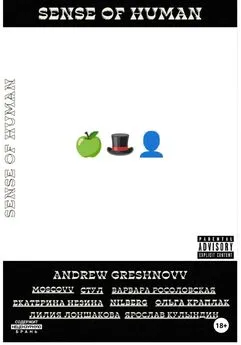David Steindl-Rast - Words of Common Sense
- Название:Words of Common Sense
- Автор:
- Жанр:
- Издательство:Templeton Foundation Press
- Год:2002
- Город:Philadelphia London
- ISBN:1-932031-43-X
- Рейтинг:
- Избранное:Добавить в избранное
-
Отзывы:
-
Ваша оценка:
David Steindl-Rast - Words of Common Sense краткое содержание
Words of Common Sense - читать онлайн бесплатно полную версию (весь текст целиком)
Интервал:
Закладка:
In one type of proverb, common sense reaches its perfect expression. At first sight, proverbs of this sort may appear
Black cows also give white milk.
— ENGLISH
It don’t make much difference where the rain come from, just so it hits the ground in the right place.
— AFRICAN AMERICAN
Dirty water also will wash dirt.
— EWE
homespun — like many great things. In fact, “homespun” is a good word to describe them if we give to “home” its deepest meaning. Common sense is the thinking and feeling and willing that we share with the whole Earth Household. There is our true home, and there the proverbs of this kind have been “spun.” They do not philosophize or moralize; they simply hold up one image, as if to say “Look!” And the more we look, the more we see. “Under trees it rains twice” (Swiss). “A tiny needle goes through coarse cloth” (Sudan). “Dead twig shows itself when the buds come out” (African American). “Drop by drop carves the stone” (ancient Rome).These images are spun by the great Mother-of-All on the same spinning wheel on which the threads of the world itself are being spun. This is why these proverbs shine so brightly and yield ever new insights. We find images of this kind throughout the parables of Jesus.
Slowly, slowly will catch the monkey.
— JABO
Drop by drop fills the pot.
— DUALA
The hindermost ox also reaches the kraal.
— DUTCH
The one who runs and the one who limps meet again at the ferry.
— EGYPTIAN
The Common Sense Sayings of Jesus
The original message of Jesus still sparkles with freshness, and nowhere more brilliantly than in his parables. Like grains of gold in sand, these parables were deposited in the earliest layers of Christian tradition. Better than most other gospel passages, they preserve the live words of the Teacher. That Jesus taught in parables is one of the few historical facts about him that we know with certainty. Mark, the earliest gospel writer, even claims, “Without a parable he did not speak to them” (4:34).Though Mark may be overstating his case, the fact remains that we can find the essence of Jesus’ message in his parables.This is true in a double sense— with regard to content and with regard to form. Parables contain the gist of what Jesus taught and his choice of the parable form is in itself an essential aspect of his message.
Mountains don’t need mountains, but humans need humans.
— BASQUE
Frost destroys only the solitary blades of grass.
— CHINESE
The third strand makes the cable.
— DUTCH
A single stick smokes but doesn’t burn.
— GALLA
Sticks in a bundle cannot be broken.
— BONDEI
Many parables of Jesus resemble those proverbs in which a vivid image sparks a common-sense insight. Sometimes expanding the image into a brief narrative, Jesus pushes the inner mechanism of that type of proverb just a little further. Typically, his parables have three steps. Step one confronts us with a question: “Who of you…?” (Who of you doesn’t know that figs don’t grow on thistles? That blind guides are not particularly reliable? That a tiny seed grows into a tall tree?) Step two is our reply. Without hesitation we answer: “Well, everybody knows this. Common sense tells us so!” But then comes step three — another question, and often a merely implicit one: “Ah, if you know it so well, why don’t you act accordingly?” Laughter is the proper response. The joke is on us. We can all laugh together at the fact that we have all the common sense we need yet when it comes to the most important matters, we live like nitwits. Parable after parable is a variation on this joke.
A closer look will show us, however, that few of the parables in the gospels still work as jokes. The reason is obvious. How often can you tell the same joke to the same audience?
After a few times even the most patient ones will boo. And yet, the images Jesus used remain precious to his followers. So tradition retains and repeats the images, but turns the jokes into moralizing stories. The so-called Parable of the Good Samaritan (Luke 10:29–37) is a good example of this tendency.
The context in Luke’s gospel is a discussion about loving one’s neighbor. “But who is my neighbor?” someone asks. Jesus picks up the implication, “God forbid that I should be kind to someone who isn’t — in the full technical sense — my neighbor!” He seems to chuckle as he answers by telling a story: “A man went down from Jerusalem to Jericho…. ” Now remember: this man is you. The first person mentioned is often the one with whom you must identify for a joke to work. So you travel down that road, notorious for its robbers, and sure enough, one of them holds you up, beats you, strips you, and lets you lie there half dead. You are only half dead; this is important, because you must be just alive enough to see what happens next. This story is told from the perspective of the one who was mugged, and that is you.
So you lie there by the roadside and someone comes down the same road. “Oh, here comes my neighbor,” your heart cries out. “He must help me!” Notice that you suddenly know who is your neighbor, now that you are in trouble.You know it, but he doesn’t — or doesn’t want to know; he walks right by. But wait, you get another chance. Another traveler is coming by. “Surely this one will know that he is my neighbor and will help me!” You don’t know who it is, but common sense tells you that he is your neighbor. Unfortunately, he too walks by on the other side of the road. But don’t give up yet (there is always a third one in a joke of this kind). Each time you hope more fervently that the stranger will know he is your neighbor. Finally a third one comes by — a Samaritan. By now the story has maneuvered you into a position where you are more than glad to welcome absolutely anyone as a neighbor. Anyone without restriction? Yes, even a Samaritan! For a Jew to think of a Samaritan as neighbor was outrageous. But here common sense suddenly clashes with public opinion and wins.
Tongue in cheek, Jesus asks, “Now which of the three, do you think, was neighbor to him who fell among the robbers?”
Who gives to me teaches me to give.
— DUTCH
To give to the needy is not to give but to sow.
— BASQUE
A gift goes out on a donkey and comes back on a camel.
— EGYPTIAN
The one who had asked “Who is my neighbor?” can no longer claim that he doesn’t know the answer. Still, he will only say, “The one who showed him mercy.” The S-word sticks in his throat; he cannot get it over his lips that a “dirty Samaritan” was indeed his neighbor.
The stories Jesus tells are not edifying tales, but jokes of this kind: You want to know who is your neighbor? Wait ’til you get into trouble. Why does your common sense work so well when you are in need? Why is your sense of our common humanity so restricted when another needs your help?
You notice the three elements typical of Jesus’ parables. A strong image: yourself as victim of a mugging; a commonsense insight: when you are in need, you know that everyone is your neighbor; and the point of the joke: if you know this so well, Dummy, why act as if you didn’t?
By replacing “Samaritan” with the name of a current ethnic scapegoat we, too, might get the point and laugh at our own prejudices. Of course, by calling this the Parable of the Good Samaritan, we kill the joke. Among those to whom Jesus first told the parable, the only “good Samaritan” was a dead
The horse must graze where it is tethered.
— BELGIAN
Bloom where you are planted.
— ENGLISH
The paddle you find in the canoe is the one which will take you across.
— LIBERIA
Samaritan. Miss this point, and all that’s left is an edifying tale told by a detached reporter. But when we look at the events through the eyes of the prejudiced victim with whom we identify, we are suddenly confronted with the authority of common sense.
Water never loses its way.
— BANTU
Water makes its own channel.
— CHINESE
Every river run to its mamma.
— AFRICAN AMERICAN
Common Sense as Ultimate Authority
The authority to which Jesus appeals is the authority of Common Sense — with capitals, because we mean by it Divine Wisdom — Sophia — which Lao Tsu called Tao and Heraclitus called Logos. In fact, when Mark says, “In many parables Jesus spoke to them the word” (4:33), he uses for “word” the term Logos, which, ever since Heraclitus, carries in Greek the special meaning that we are giving to Common Sense. We must stress this point: Jesus does not appeal to divine authority enshrined in sacred Scripture, as did the priests and scribes who said, “Thus it is written….” Nor does he appeal to divine authority as speaking through him, as did the prophets, who said, “Thus speaketh the Lord….” When he challenges them with “Who of you… doesn’t know this already?” Jesus appeals to the divine authority in the hearts of his hearers.
It’s when you cross the ford that your leg problems show up.
— EGYPTIAN
The dust speck always heads for the single eye.
— CHUANA
All the flies will alight on the sick goat.
— AUSTRIA
It’s the sore toe that gets stubbed.
— KENYA
The neighbor will call on the day you do your hair.
— CATALONIAN
Priests, scribes, and prophets talk down at the people from the high ground of divine authority; Jesus stands on common ground with them and makes them stand on their own feet by recognizing that divine authority speaks through common sense.The implications are staggering.
Common Sense is the ultimate authority. Deep down we all know this. If the teachings of ministers and theologians can’t stand up to Common Sense they crumble. If the exhortations of preachers fall short of Common Sense, they fail. When a teacher awakens us to use Common Sense ourselves, we respond as Jesus’ hearers did. “They were astonished at his teaching, for he taught them as one who had authority. .” (Mark 1:22). Mark adds, “not like the scribes”—not like the authoritarians.This comparison contains a death sentence for Jesus. Nothing is more threatening to an authoritarian mind than an appeal to the authority of Common Sense. Religious and political authoritarians alike will not rest until anyone who mobilizes Common Sense among the common people is wiped out. This is why Jesus had to die.
When the bait is worth more than the fish, it’s time to stop fishing.
— AFRICAN AMERICAN
It’s poor economy to go to bed early to save candles if the result will be twins.
— CHINESE
Authority as such is of course a good thing. It is by definition a firm foundation for knowing and acting. A community will elevate those who excel in leadership skills and wise counsel to positions of authority and entrust them with power. But power corrupts. Inevitably, some who do not possess the necessary qualifications will acquire positions of authority and hold on to them. They will wield power without the required wisdom and compassion. Such authoritarians are the sworn enemies of genuine authority grounded in Common Sense. They will try to maintain their hollow power through spreading fear. Fear keeps Common Sense down — fear of losing your job if you speak up and question policies that go against common sense; fear of being ostracized if you question authority.
Refusal to be questioned is a sure characteristic of authoritarian power. Authority deserves to be questioned. We owe it to those in authority to keep them on their toes. Genuine authority wants to be questioned, because only through continual respectful questioning can those in power overcome the temptation of thinking that they have all the answers. No one does; life is too surprising for that.
Читать дальшеИнтервал:
Закладка:









